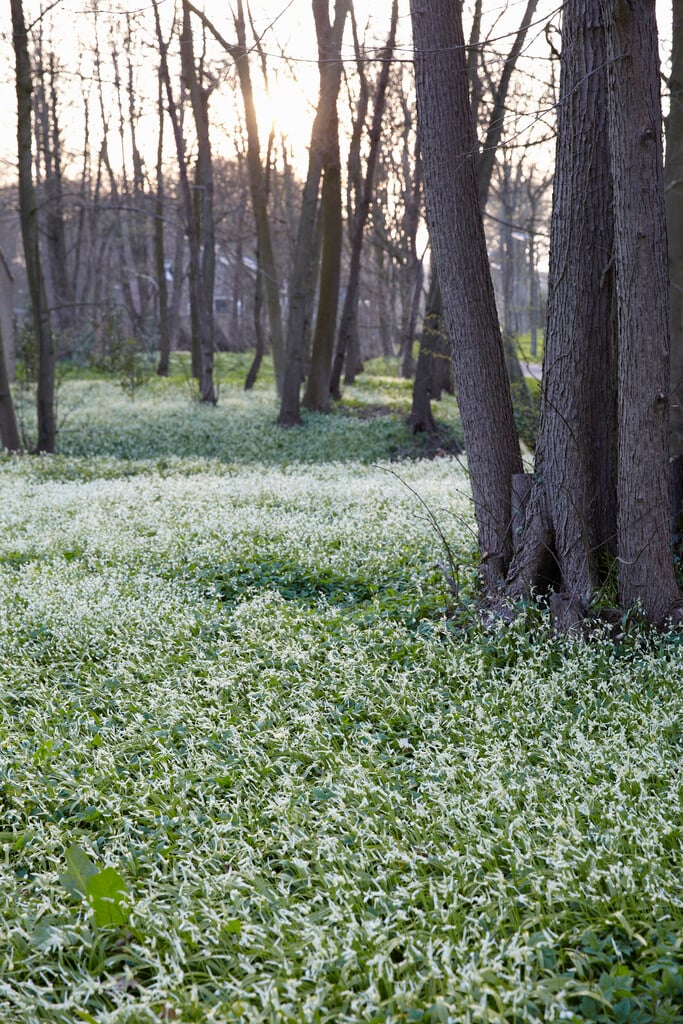Allium paradoxum
few-flowered garlic
A bulbous perennial to about 50cm in height, with garlic-scented, bright green, long, thin leaves to 40cm. Tiny white flowers are produced during early to late spring on upright stems to 50cm long and are quickly replaced by clusters of small bulbils; quickly spreading, it may become a nuisance if conditions are favourable
Size
Ultimate height
0.1–0.5 metresTime to ultimate height
1–2 yearsUltimate spread
0.1–0.5 metresGrowing conditions
Moisture
Moist but well–drained, Well–drainedpH
Acid, Neutral, AlkalineColour & scent
| Stem | Flower | Foliage | Fruit | |
| Spring | White | Green | ||
|---|---|---|---|---|
| Summer | Green | |||
| Autumn | Green | |||
| Winter |
Position
- Full sun
- Partial shade
Aspect
East–facing or South–facing or West–facing
Exposure
Exposed or Sheltered Hardiness
H6Botanical details
- Family
- Amaryllidaceae
- Native to GB / Ireland
- No
- Foliage
- Deciduous
- Habit
- Clump forming
- Genus
Allium are bulbous herbaceous perennials with a strong onion or garlic scent, linear, strap-shaped or cylindrical basal leaves and star-shaped or bell-shaped flowers in an umbel on a leafless stem
- Name status
Correct
How to grow
Cultivation
This plant is listed on Schedule 9 of the UK Wildlife & Countryside Act as an invasive non-native species. Although not banned from sale, it is an offence to plant or cause these to grow in the wild IN ENGLAND WALES, NORTHERN IRELAND and the REPUBLIC OF IRELAND. Gardeners possessing them should undertake measures to control them. See wild garlics, and RHS advice on invasive non-native species, for more information
Propagation
Please see cultivation notes
Pests
May be susceptible to allium leaf miner and onion fly
Diseases
May be susceptible to onion white rot, and onion downy mildew
Get involved
The RHS is the UK’s gardening charity, helping people and plants to grow - nurturing a healthier, happier world, one person and one plant at a time.
